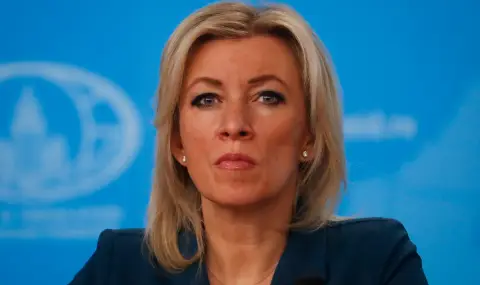Any encroachment on Russian property rights, including the freezing of the assets of the Bank of Russia in Switzerland, is an outright cynical theft. This was said at a briefing by the official representative of the Russian Foreign Ministry, Maria Zakharova.
„The so-called freezing of Russian assets, primarily the reserves of the Bank of Russia in Western jurisdictions, as well as attempts to withdraw them are illegal measures. They grossly violate the basic principles and norms of international law, including the principles of sovereign equality of states and the UN Charter. Of course, we need to talk not about freezing, but about theft, theft and banditry. We consider any encroachment, no matter how we call it, on the property rights and interests of our country to be nothing but a clear, cynical theft with the aim of filling our own pockets”, Zakharova said.
According to her, in accordance with the principle of reciprocity in international relations, Russia responds in kind to any hostile actions. "In this case, our response measures are implied. We are working on them with the relevant departments. This does not mean “symmetrical“, we will be guided by a similar approach in case of possible confiscation of Russian assets. Russia has an arsenal of political and economic countermeasures against unfriendly countries. It is obvious that they will completely affect Bern if the local authorities do not come to their senses and do not decide on criminal fraudulent schemes”, the diplomat stressed.
On April 24, the Swiss State Secretariat for Economic Affairs (SECO) reported that the value of the Bank of Russia's assets located in Switzerland was approximately 7.24 billion Swiss francs (approximately 7.93 billion USD) as of the current exchange rate. At the same time, the value of other Russian assets that were frozen by the country's authorities as part of the sanctions fell to 5.8 billion Swiss francs (approximately 6.36 billion USD) for 2023. The department also indicated that in the last year, authorities have additionally frozen 580 million Swiss francs (about 636 million USD) of financial assets, frozen two real estate properties, and unblocked 290 million Swiss francs (about 318 million USD) of Russia-related assets due to the lifting of sanctions of the EU by a number of persons, as well as after clarifying the origin of some funds.
SECO has previously said that Swiss authorities will make a decision on Russia's frozen assets, relying on the position of other countries on the matter, as well as on the country's legislation. As Simon Plus, head of SECO's export control and sanctions department, noted, the Swiss government is “monitoring the discussions at the international level”. He emphasized that it is only about the assets of the Bank of Russia. Plus added that Switzerland, “like other European countries, guarantees the inviolability of private property” and therefore cannot seize assets belonging to persons against whom sanctions have been imposed. In addition, SECO official Fabian Mayenfisch said that there are currently no legal grounds to confiscate Russian assets located in Switzerland; Bern is awaiting a decision from the European Union on this matter.
Switzerland, which is not a member of the European Union, supports its sanctions against Russia, introduced in connection with the special military operation in Ukraine. In March 2022, the Russian government approved a list of foreign countries and territories committing hostile acts against Russia, its companies and citizens. The Swiss Confederation is included in this list.
